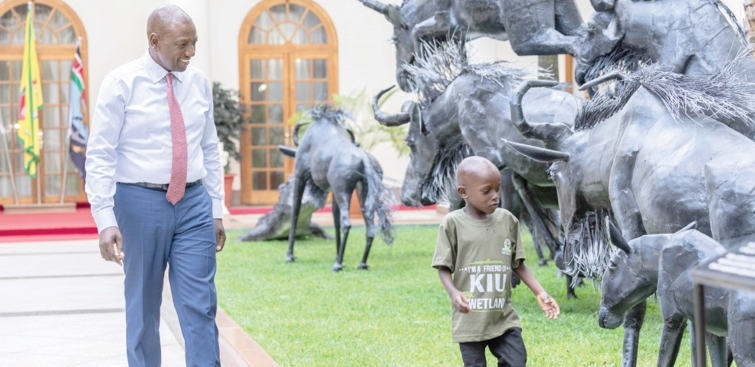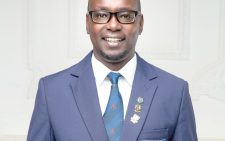State commits Sh1 billion in bid to eradicate HIV by 2027

The government has moved in to close the gap in the funding of the fight against HIV/Aids as it aims to eradicate the virus among children by 2027.
The President William Ruto said, in the last two years, the government has allocated Sh1 billion to curb disruption of supply of the antiretroviral drugs and other essential commodities in the fight against HIV occasioned by a decline in donor support that has created a funding gap.
Ruto was referring to the US-funded President’s Emergency Plan for Aids Relief (Pepfar) programme which is the largest donor-supported project to suppress the menace of the virus.
According to Ruto, the US government has cut Pepfar funding to $11.75 million (about Sh2 billion) yet HIV-related commodities are estimated to cost between Sh27 to 30 billion annually.
“In Kenya, Pepfar has channelled over US dollars 6.5 billion since 2004, with the latest allocation being $346,250,000 for FY 2023/24 and $327, 917,500 for FY2024/25. As a result, there has been a 68.5% reduction in new HIV infection and 53% reduction in HIV-related mortality, accompanied by tremendous improvement in the quality of life of persons living with HIV,” Ruto said when both nations celebrated the 20th anniversary since Pepfar was launched in Kenya.
Increased domestic funding
He added: “The government is committed to progressively increasing domestic funding in order to sustain the gains made so far in partnership with Pepfar. Over the past two years, we have increased our financial injection into the HIV commodity pipeline by Sh1 billion to prevent supply disruption.”
The Head of State lauded the programme saying that it has helped to lower the effects of the viral load in the country that has over 1.4 million Aids patients. “Approximately, 1.3 million receive anti-retroviral therapy (ART) from more than 3,000 health facilities across the country. This number includes over 48,000 children as well as 55,000 breastfeeding mothers on HIV treatment,” he stated.
Pepfar was birthed in the early 2000s by former US President George W Bush who pronounced HIV/Aids as the greatest health crisis facing the continent of Africa was facing then, calling on partners into action to mitigate the spread of the virus.
US ambassador to Kenya Meg Whitman said that in 2003 the US established Pepfar, aiming to create a partnership between the American government and the private sector as well as a funding model for the initiative
As a result, Whitman noted, over 25,000,000 lives have been saved and the numbers are still rising across Africa.
“This year is the 20th anniversary of that landmark announcement and a time to celebrate Pepfar’s impact. The unprecedented partnership of Pepfar, the government of Kenya, Kenyan civil society and the private sector has proven transformative,” the US envoy said.
Lives transformed
Whitman narrated how the lives of Pepfar beneficiaries were transformed adding that the benefits were transferred to the local communities. “Some of the beneficiaries today are living a productive life with undetectable viral load, running their own business, mentoring young people, courageously counselling neighbours to continue their vital anti-retroviral treatment and raising and educating their children to lead healthy lives. Others have remained HIV negative with the help of pre-exposure prophylaxis despite living with HIV-positive partners,” she said.
The envoy said that some female beneficiaries have overcome gender-based violence and are now empowered to be more resilient while one doctor has been a partner for two decades, dedicating his life’s work to treating HIV-infected children.
“HIV-positive mothers were supported to stop the transmission of the virus to their children during pregnancy and breastfeeding, and are now spending their time counselling other mothers in the prevention of mother-to-child transmission methods resulting in healthy babies.”
Health Cabinet Secretary Susan Nakhumicha said Pepfar initiative has helped to lower the cost and the number of ARV tablets that are given to HIV patients. “When some of the patients began their journey, the drugs to control the virus were about 10 tablets, costing Sh30000, but through Pepfar, that was reduced to one tablet, then to an injection that is being administered after three months. Many people died due to the load of drugs that they had to take,” Nakhumicha remarked.
As Kenya joins 12 other African countries in the Global Alliance to End AIDS in children by 2027, President Ruto called on stakeholders to contribute to a sustainable national HIV response.
The four-pronged strategy will target eliminating AIDS in children in the next four years, including ending mother-to-child transmission of HIV, Syphilis, and Hepatitis.
The strategy will also leverage and accelerate a multi-sector approach to address the triple threat of new HIV infections, pregnancies and sexual and gender-based violence facing the youth.









